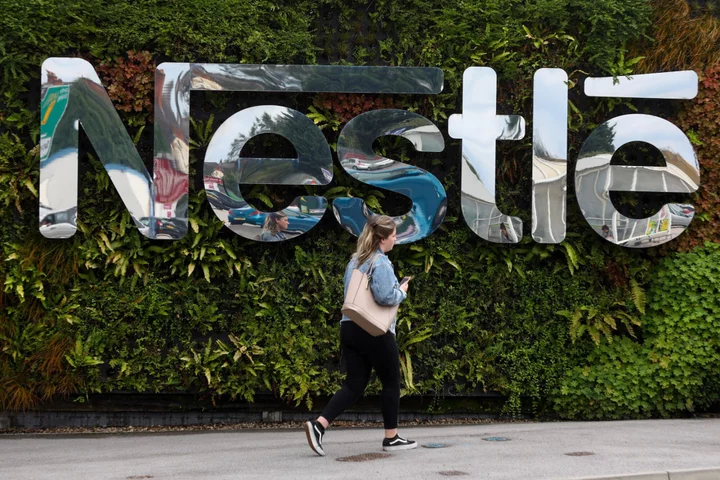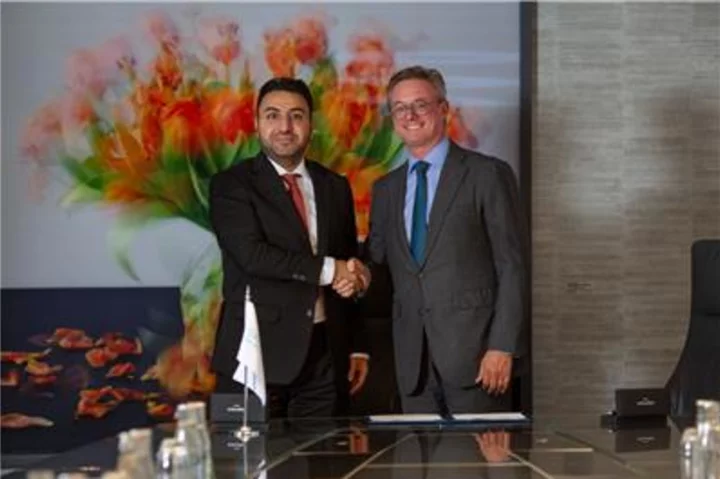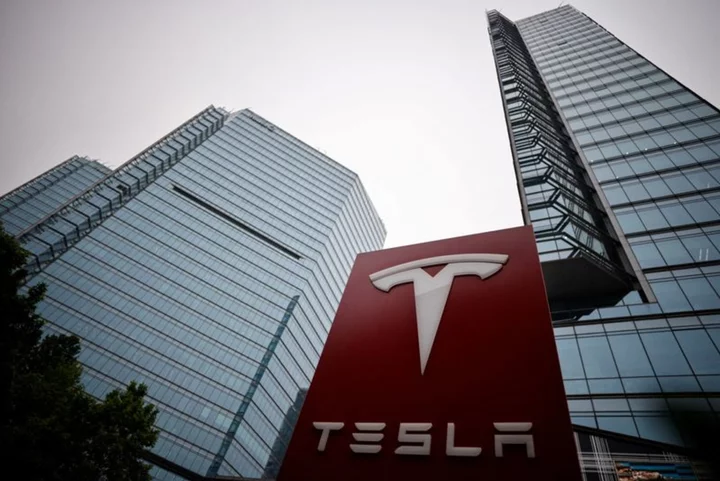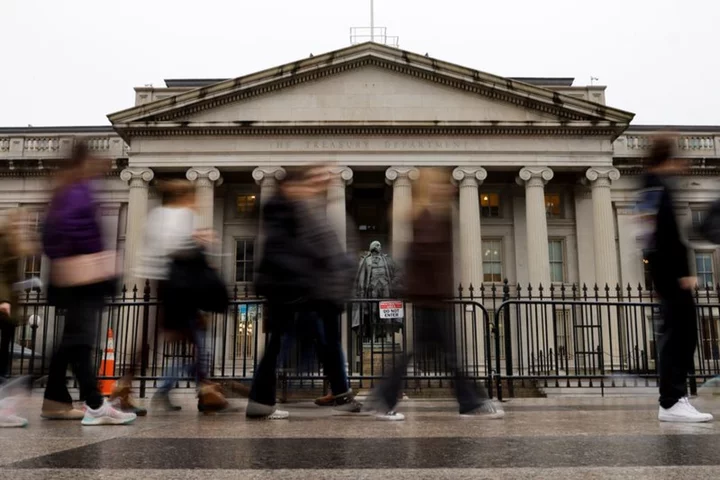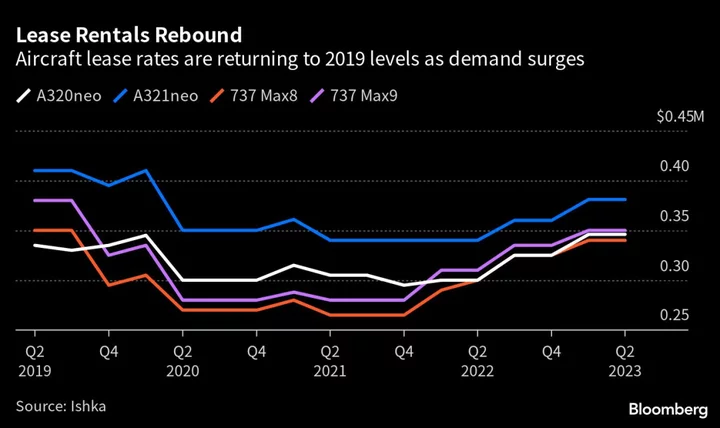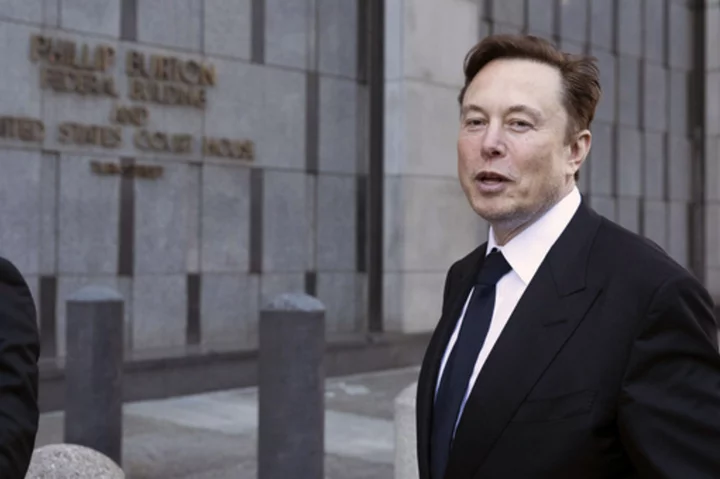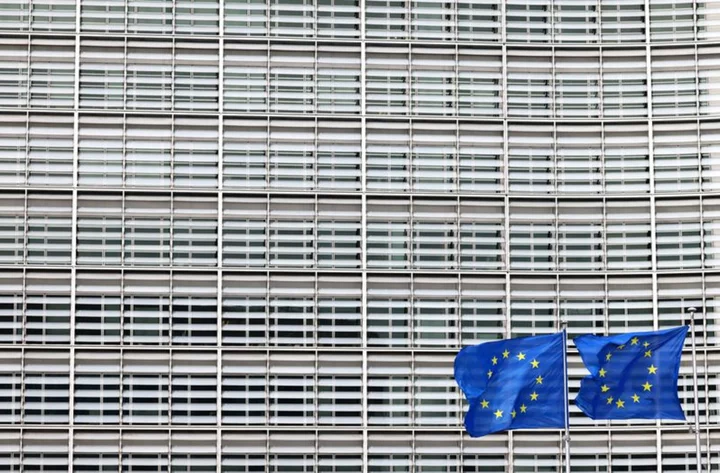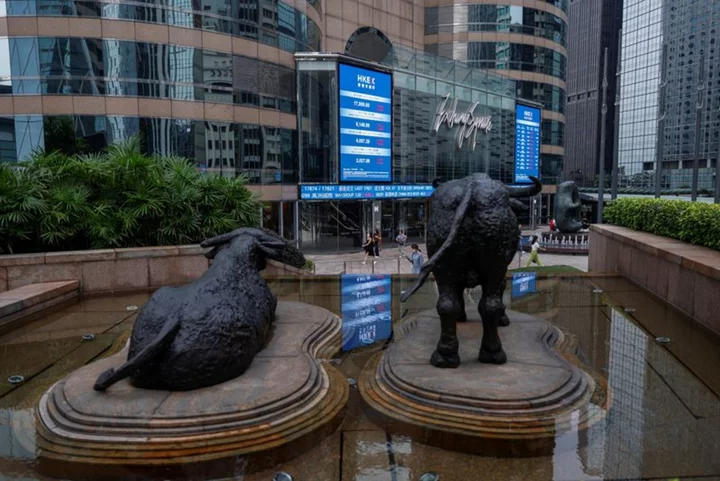Nestle SA inched up its revenue guidance, forecasting a rebound in consumption after passing peak inflation.
Sales should rise 7.5% to 8% this year on an organic basis, Chief Executive Officer Mark Schneider told reporters, implying they may beat the consensus. First-half revenue gained more than analysts expected as the world’s largest food company pushed up prices of Purina pet food and KitKat chocolate bars.
The stock rose as much as 1.3%.
Like many consumer goods companies, the Swiss maker of Nespresso and Perrier has been increasing revenue through price rises in recent quarters as volumes falter. With commodity price inflation on a downward trajectory, companies are looking at how they can claw back market share from private-label products and encourage consumers to spend, even as budgets remain tight.
Volume was negative for a fourth consecutive quarter as shoppers balked at higher prices and bought fewer branded products. Schneider said he’s confident that volume and the mix of products sold should improve in the rest of the year as Nestle boosts marketing spending.
The results were “slightly underwhelming,” wrote RBC analyst James Edwardes Jones, who noted that volumes dropped more in the second quarter than in the first.
The company is also struggling with capacity constraints that are particularly affecting products such as Purina petcare and coffee creamers in the US as well as Perrier bottled water.
Gross margin, a measure of profitability, should widen in the second half after a decline in the first six months of the year, Schneider said.
The CEO said he expects to finish the strategic review for Palforzia, a peanut-allergy medicine, by year-end. Nestle is considering several options, and had originally expected to complete the process in the first half. Bloomberg reported earlier this month Nestle is considering selling the business to Swiss health-care group Stallergenes Greer, citing people with knowledge of the matter.
Schneider acquired the maker of Palforzia for $2.6 billion in 2020, making one of his biggest moves into health since starting as CEO in 2017. However, Nestle wrote down the bulk of its value earlier this year after sales of the medicine missed expectations.
Previously the low end of Nestle’s full-year sales growth forecast was 6%.
(Updates with shares in third paragraph)

